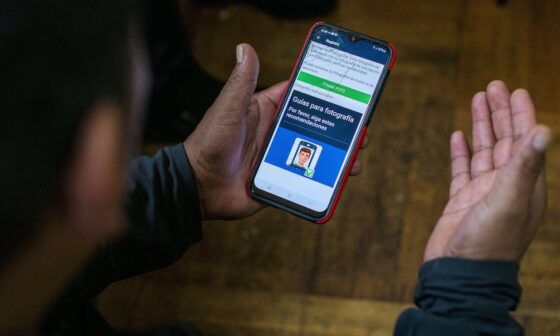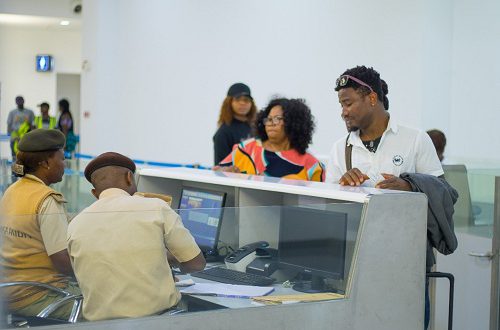Are you a Nigerian dreaming of becoming a US citizen? Have you tried citizenship and naturalisation yet? Do you want to try it but don’t know how to go about it? for many Nigerians living in the United States, obtaining citizenship through naturalization is a getaway of opportunities because it gives you equal rights as a citizen, unlike the green card or permanent resident card with various restrictions. Obtaining citizenship by naturalization can be exciting and complex, that is why I’m here to simplify it as much as I can for you.
In this article, I will explicitly explain everything about the eligibility for citizenship by naturalization, the timeline, how to file for the application, the benefits of citizenship by naturalization, the cost of the application, and your responsibilities as a US citizen. Stick with me.
What Is Citizenship by Naturalization?
Citizenship by naturalization is a process whereby a person born outside of the U.S. or an immigrant becomes a U.S. citizen. However, this person will be granted citizenship by naturalization only if they meet a set of requirements established by Congress in the Immigration and Nationality Act. Such requirements might include being a green card holder for 3-5 years or meeting various military service requirements.
As an immigrant in the U.S., it is important to note that the processes of becoming a citizen through citizenship through acquisition and citizenship by naturalization are not the same. For naturalization, you must be over 18 years of age before application but citizenship through acquisition is for someone who is born in the United States or its territory or someone whose parents are U.S. citizens.
Lawful citizenship can be granted through the naturalization process or the acquisition of citizenship. The difference is that the acquisition is given because of the person’s relationship with U.S. citizens, whereas naturalization requires a set of requirements for adults.
Key Points
- To be eligible for citizenship by naturalization in the U.S., applicants must be at least 18 years old, hold a permanent residency card (green card), and meet specific residency requirements, such as having been a permanent resident for 3-5 years, depending on their circumstances. Additional requirements include having lived in the U.S. for a specified period, passing the English and civics tests, and demonstrating good moral character.
- Certain groups, such as military personnel and individuals with disabilities, may qualify for exceptions to standard naturalization requirements. For instance, those who served in the U.S. military during wartime may apply without holding a green card, and individuals with disabilities can be exempted from the English and civics tests by filing Form N-648.
- The naturalization process involves several steps, including filing Form N-400, attending a biometric appointment, undergoing an interview and exam, and participating in an oath of allegiance ceremony. The application fee is $760, which includes biometrics services, though certain applicants, like military personnel, may have these fees waived. The entire process typically takes around 8 months, but this can vary based on individual circumstances and location.
What Is the Eligibility for Citizenship by Naturalization?

Eligibility for citizenship by naturalization generally depends on a number of factors. If you have never acquired U.S. citizenship by any other means, you will need to review the naturalization eligibility worksheet to determine if you are eligible to apply.
The main questions to determine eligibility for naturalization are:
- Are you at least 18 years old?
- Are you a permanent resident of the United States and hold a permanent residency card?
- Have you been a permanent resident for at least 5 years ( can be 3-5 years under certain circumstances)?
- How long have you physically lived in the United States?
- Have you served in the U.S. military ? (and if so, was it during wartime or peacetime?)
The following are the most common groups of individuals who are eligible for citizenship by naturalization and when they can apply:
- Green card holders with no special circumstances can apply for citizenship 5 years after obtaining their green card and must have physically lived in the United States for 30 months
- If you have lived at least 3 years with your spouse, who is a U.S. citizen, you can apply to become a citizen after 3 years of obtaining a green card and must have physically lived in the United States for at least 18 months.
- If you are the widow or widower of a US soldier who died while serving the country, you can apply for citizenship anytime as long as you are a green card holder at the time of the interview, but you must have been living with the spouse at the time of death.
- You can apply on active duty or within six months of separating honourably from the military if you have served at least 1 year in the military during peacetime. If you served for less than 1 year, you can only apply after 5 years of obtaining your green card and must have physically lived in the United States for at least 30 months within the five years.
- You don’t need to be a green card holder to apply for citizenship if you have served in the US military during wartime. All you need is for you and your spouse (if applicable) to be present in the US (territory inclusive) or aboard a US vessel when enlisted, re-enlisted, extended your service, or were inducted into the military.
What Are the Requirements for Citizenship by Naturalization?
Waiting for 3-5 years after obtaining your green card isn’t one of the requirements needed for this application. The following are listed below as other requirements needed:
- You must be at least 18 years old
- During your 3-5 waiting years, you must have taken any trip up to six months or longer outside of the United States
- You must have been a resident of the state where you want to apply for citizenship for at least 3 months
- You must not have been convicted of certain types of crimes, such as murder, illegal gambling, or lying to the U.S. government, in order to gain immigration benefits on your record at any time before filing, and you must not have lied during your naturalization interview.
- You must have passed the English test and the civics test, which are the two-part naturalization test.
- You should have no issue with serving in the military or overworking any civilian service for the country if called at any time to do so
- If you are between the ages age 18 and 25, you must have registered with the selective service system
- You must always be ready to defend the US constitution.
Special Requirements for U.S. Military Personnel
Advertisements
Green card holders who are currently or formerly members of the US military must meet the following additional requirements:
- You must have never received a discharge or an exemption from the US military based on your non-US citizen status.
- You must have deserted from the US military
What Are the Exceptions to the Requirements for Citizenship by Naturalization?
Not all applicants are expected to meet the above requirements. Some of these applicants have exceptions based on one or two reasons. The following are the categories of exceptions:
#1. Exceptions Based on Disability
People with disabilities such as mental impairments are exempt. taking the two-part naturalization test, which includes the English and civic tests. They are to apply for exemption by filing Form N-648 ( officially called the medical certification for disability exceptions), which is completed by a medical doctor.
#2. Exceptions Based on Military Service
This one is divided into two depending on when the person served in the military, which can be either during peacetime or wartime. If you served for at least one year during peacetime, then you are exempt from requirements 2 and 3 above, and to meet criteria 4, you must have a criminal-free record for five years before application.
If the applicant served in the military during the war, they are exempt from requirements 1 to 3 above, and to meet requirement 4, the applicant must have a criminal-free record for at least one year before application.
How Much Does It Cost to Apply for Citizenship by Naturalization?
The current fee for citizenship by naturalization in the United States is 1,128,600 naira ($760). That total includes 1,128,600 naira ($760) for application processing and 126,225 naira ($85) for biometrics services, both of which are non-refundable, regardless of whether the U.S. government approves or rejects an application. If you file your application online rather than by email, you will get the 74,250 naira ($50) discount from USCIS. Some applicants, however, can have these fees reduced or waived entirely. If you can’t afford the filing fee, you are free to apply for a reduction or waiver as well.
Advertisements
Not everyone must pay the full government fees for naturalization. Those applying for U.S. citizenship based on their military service are exempt from both the application filing fee and the biometrics fee. Applicants aged 75 and older are exempt from the biometrics fee only. Everyone else must pay both fees, unless eligible for an income-based fee waiver or reduction.
What Is the Timeline for Citizenship by Naturalization?
It takes 8 months from the time you file your citizenship application to the time you attend the oath of allegiance ceremony. It’s very important to note that the wait and processing times in this article are official averages and estimates only and do not reflect possible delays. The application might take longer than 8 months, as written in this article, which can depend on where the applicant lives because some USCIS offices handle such applications faster than others.
How to File for Citizenship by Naturalization
The following is the step-by-step process for filing for citizenship by naturalization. The steps include:
#1. Application for Naturalization
The first step in becoming a US citizen through this method is to file Form N-400 and pay the filing fee. You can file online by creating a USCIS online account or file by email. If you file the application by paper, you must make sure that the address corresponds with the state you live in. If your application is based on military service, reduction, or waived fees, you may have to file your application by mail with the appropriate USCIS office. The following documents should be submitted along with Form N-400:
- A copy of your permanent resident card
- A copy of your marriage certificate ( if applicable)
- Two passport-style photographs if you live outside of the U.S
- A copy of the military orders if your naturalization application is based on service
Once you have paid and USCIS receives your submission, they will give you a receipt notice. Your status can be checked by typing your receipt number into your online status update page. The application process can take up to 8 months or more and varies depending on your location. Processing time can take up to 18 months or more.
#2. Biometric Appointment
The biometrics include digital signatures, fingerprints, and photographs. As with the family-based green card, USCIS will take your fingerprints during naturalization in order to run a background check on you. The fingerprinting might take place about a month after the USCIS receives your US citizenship application. Before doing so, you must receive information from the USCIS regarding the date, time, and location of your biometrics appointment.
#3. Citizenship Interview and Exam
You should be expecting your interview 14 months after filing your US citizenship application. How long it will take to process your naturalization depends on the USCIS office handling your application and this will be assigned to you based on your zip code. This interview also serves as a means for USCIS to determine if the information you provided in your application is true. If you are on active military duty, your interview may be held at a military facility.
This is the time when you will be given the two-part naturalization test (unless you qualify for an exemption). Depending on where you filed for an application, the USCIS will either give you the 2008 or 2020 version of the civics test. With the 2008 version, you will be asked a series of 10 questions and to pass, you must be able to answer 6 correctly. With the 2020 version, you will be asked a series of 20 questions and to pass, you must be able to answer 12 questions correctly.
Prior to this interview, the USCIS will provide a study guide to help you prepare. You will also be granted two chances to take the test per application. This happens once during your interview and then at a later date to retake any portion that you didn’t pass the first time.
There are three options you can receive after the interview process They include:
- Granted, you have been granted citizenship by naturalization
- Continued: you are eligible for citizenship but will need to submit additional requirements or retake the civic and English tests
- Denied—that means you were found ineligible for citizenship
#4. Oath of Allegiance
The next thing after your application has been approved is to take the oath of allegiance. This step is very important because you are not fully a US citizen until you complete it. The ceremony can either be a judicial ceremony through the court or an administrative survey through USCIS. You will also need to fill out the questions in Form 445, which is called the Notice of Naturalization Oath Ceremony, to give to a USCIS officer during the ceremony. The time it takes to schedule the ceremony varies by state but nevertheless, you will receive a notice with the date and location in your email after your citizenship interview. During the ceremony, you will be asked to submit your permanent resident card or green card since you won’t need it any longer. Once you have received your certificate of naturalization, congratulations! You are now a US citizen.
Benefits of Citizenship by Naturalization
There are a number of benefits you will access that you couldn’t access when you were just a green card holder. The benefits include:

- Green card holders only have the right to vote in certain local municipalities but with citizenship by naturalization, you can make an impact on the national stage by casting your vote in federal elections
- Since you are already considered a citizen, you are free to run for any office with citizenship by naturalization
- Moving forward, no more filing fees, no more filling out forms with USCIS, no more green card renewals or replacements, and no more having to check with the government whenever you decide to move
- You can not be forced to move out of the United States because you are now a citizen, even if you were convicted or arrested. For you to be deported, you have to be stripped of your citizenship, which can occur if your application process is fraudulent in any way.
- There are no more restrictions on access to government assistance programs. You can even apply for federal government college assistance, which is reserved only for US citizens.
- You are now free to sponsor any relative who wishes to be a resident of the United States
- There is automatic citizenship for your children even if they are born outside the country, but in that situation, you will have to inform the US embassy or consulate.
What Are Your Responsibilities as a US Citizen?
It’s not just rushing to become a US citizen. Are you aware you have certain responsibilities when you become one? The following includes a list of your responsibilities as a US citizen:
- Even though the US accepts dual citizenship, you may be required to renounce other citizenship because they prefer their citizens to travel to and from the country using their US passports
- You may be called upon to serve in the IS military service That is why any male of age 18–25 who is a citizen or a green card holder must be registered in the selective service system.
- If you are ever summoned for jury duty, you must attend but may not necessarily serve unless you are selected by the judge and attorneys after being summoned. People in military service, professional fire and police department officers and some public government officers who served full-time in their positions are exempt from this.
- You must file US income tax returns for life, even if you move abroad.
- If you have committed a crime that could make you deportable, such as immigration fraud, drug abuse, or domestic violence, it will be heavily scrutinised.
Becoming a U.S. citizen comes with important responsibilities. This checklist will help you understand and keep track of your duties as a U.S. citizen:
Citizenship by Naturalization.Pdf
Do You Need an Immigration Lawyer Before You Become a Citizen?
Depending on the complexity of your case or if you simply want additional peace of mind during the process, it may be helpful to enlist an immigration lawyer’s expertise for your citizenship application. Lawyers can help you navigate the naturalization process with confidence and help you respond to government requests.
What Is the Difference Between Citizenship by Birth and Citizenship by Naturalization?
The main difference between birth and naturalization is that a citizenship by birth certificate is given to someone who acquires citizenship through their US parents by being born in the country. A certificate of naturalization is obtained by someone who becomes a citizen through the naturalization process.
What Is the Opposite of Naturalized Citizenship?
The opposite of naturalised citizenship is renounced citizenship, which is a voluntary loss of citizenship. It’s also different from denaturalization, where citizenship is revoked by the state.
Conclusion
Becoming a U.S. citizen through naturalisation is a significant achievement, especially for Nigerians who have made America their new home and I believe that I have made this guide simple enough to pull you through the process of becoming a U.S. citizen through naturalization. For Nigerians, this journey requires careful planning and understanding of the legal requirements.
Becoming a citizen in the US isn’t something you should rush because any wrong information given can be considered a fraudulent application, which leads to citizenship denial. I will advise you have an immigration lawyer help you with the process, even though it is not compulsory.
Related Articles
- Free Tips for Securing Citizenship Through Marriage in US 2024
- Simple Steps for Nigerians to Get a Canadian Work Visa and Boost Their Careers
- Canadian Immigration: How to Japa From Naija to Canada
- How to Relocate to Canada from Nigeria: A Step-by-Step Guide
References
Advertisements






